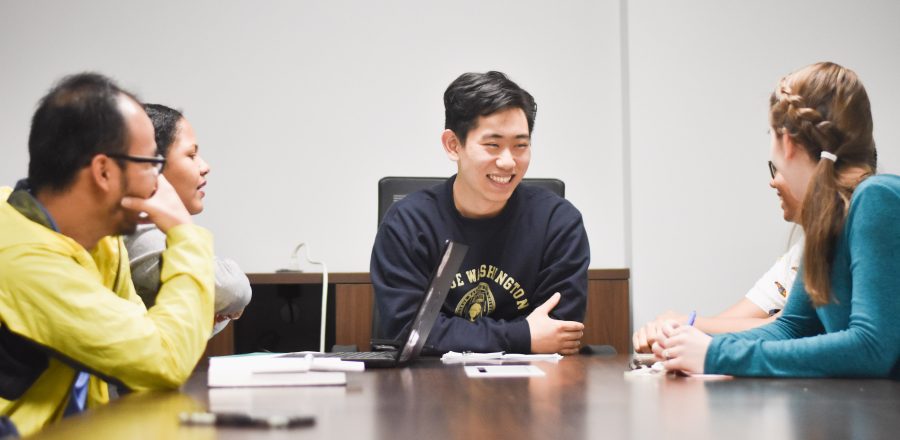Around 70 students are currently members of the Health Sciences Association, one of the most recently formed student organizations connecting like-minded individuals and informing them about opportunities in their fields.
The HSA is nearing its second anniversary, according to president Daniel Vasquez, who identified its three major focuses as professional development, networking and spiritual development.
Faculty sponsor Dr. Jessica Minor said the association connects students to each other, the community and industry professionals.
Vasquez is partnering with other campus organizations to bring in speakers on key, applicable issues. Last semester the Public Policy Organization, the Criminal Justice Association and the HSA partnered to host a human trafficking symposium.
Running a student organization takes much time and planning, but so does starting one. The 26 independent student organizations that currently exist, have gone through the process and attest to its value.
Mr. Matthew Weathers, who works with students and faculty to develop student leaders in societies and university associations, says more groups are on the way.
Qualifying student associations are focused in an academic department, have written constitutions and are helped by a faculty sponsor.
Weathers believes associations enhance a student’s value of education. “Join as many as you think you might be interested in,” said Weathers. Assess which organizations are more personally beneficial and enjoyable. Then over the four years, narrow organizational involvement to the best ones.
Some of the current leaders of various organizations have found their times involved in their organizations to be extremely beneficial.
Kristen Baisley is president of the American Choral Directors Association. “Student organizations benefit students by providing them with a small community of colleagues centered around a united interest,” Baisley said.
Katrina Holly of The Bond: Chemistry and Physics, has learned to apply her head knowledge in context. “I believe that student organizations act as a bridge between undergraduate learning and the actual work of the career world,” Holly said.
“Student organizations are opportunities to better yourself and put to work what you’ve learned in the classroom,” said Jeremiah Jones, president of the University Marketing Association.
“You are able to get involved and pursue your passions while giving you great experience to put on your resume.”
Tyler Knutson, president of the Criminal Justice Association, sees his investment in the CJA as one of the most worthwhile investments in his college career.
“By participating in student organizations, members are presented with exclusive co-curricular, field-specific learning experiences and a wide range of networking opportunities, both with other members of their organizations and with professionals already employed in their major-related field,” Knutson said.
President of the University Nursing Association, Rebecca Teruel, has gained skills through the UNA that will benefit her as a person and a nurse. “I believe that student organizations can create a camaraderie amongst the members who may have never interacted otherwise,” Teruel said.
Grace Fryml, president of the University Business Association, has learned much about leadership through her organization. “One person, a lot of times, can’t change the world, but a few people working together? That’s another story,” Fryml said.

























































